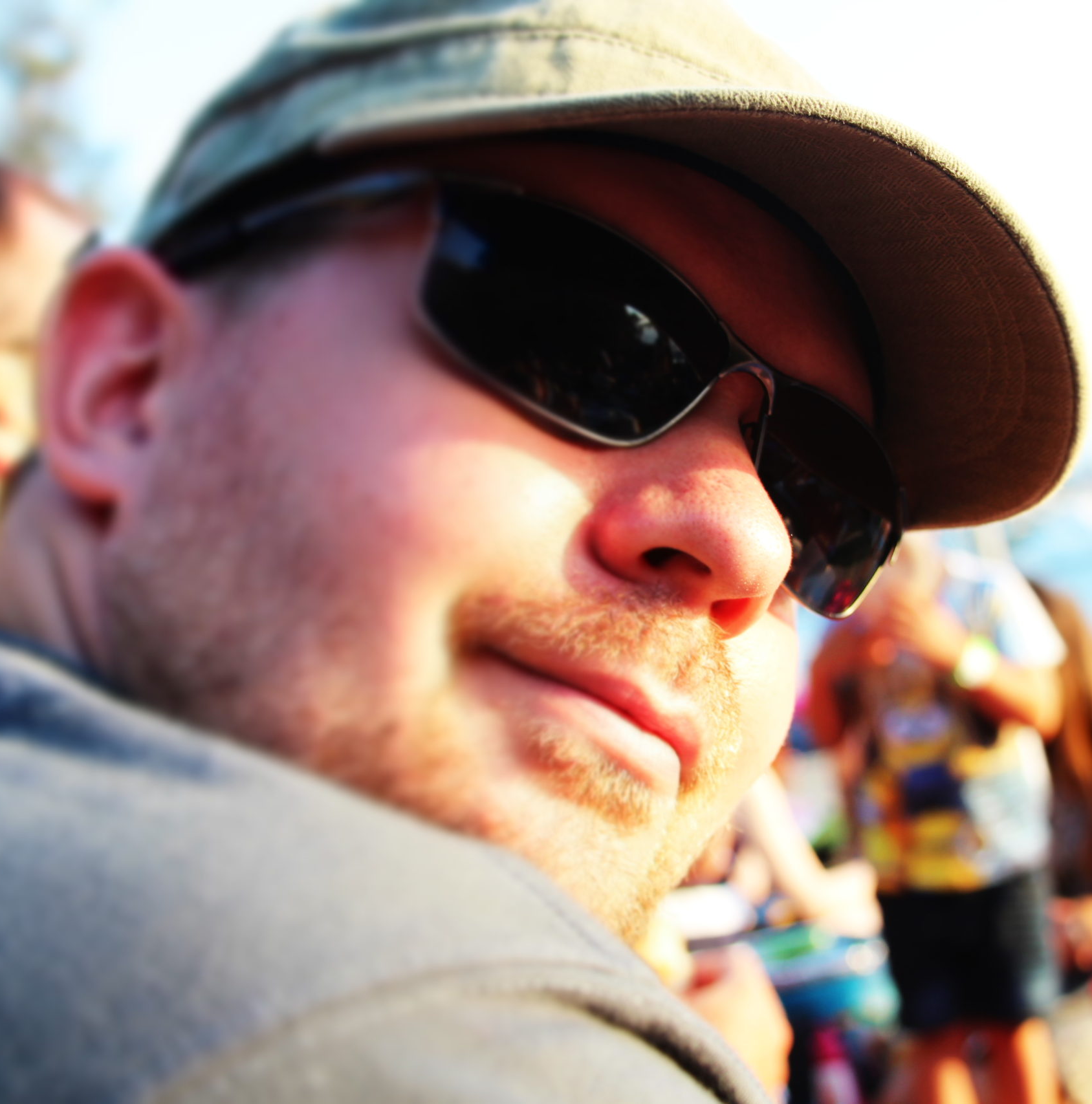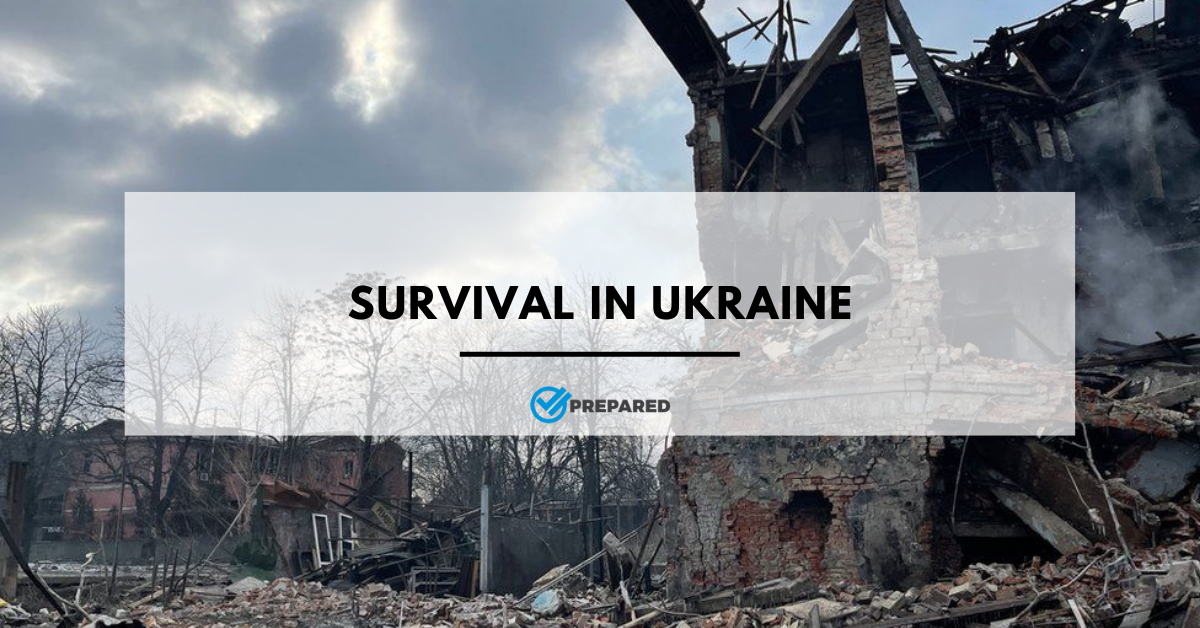On 24 February 2022, Russia invaded Ukraine, a move that has been condemned by many and has led to worldwide food and fuel shortages. The war has divided the world into those who support Zelensky and those who support Putin.
While many are arguing over who is right and who is wrong, it is the citizens who are suffering. I had the chance to talk to Rooies Strauss, who recently visited Kharkiv, in Ukraine, with his outreach team from the School of Fire, to find out more about the situation in Ukraine.
Who is Rooies Strauss?
Rooies Strauss was born in Augrabies, Northern Cape, South Africa, where he was raised by his grandparents. After school, he joined the police force. He developed an alcohol addiction, and once threatened to shoot his two-week-old son. His violent behaviour caused his wife to run away with their son.
Thereafter, he converted to Christianity and stopped drinking. He was reunited with his wife and son and started the School of Fire and the Miracle Place. The School of Fire provides training for missionaries, while the Miracle Place is a drug and alcohol rehabilitation centre. Rooies Strauss and his wife are still married and his son, Andrus Strauss, now joins him on outreaches.
The missionaries from the School of Fire always try to reach out to disaster areas, both in South Africa and abroad, so when war broke out in Ukraine, they prayed for the opportunity to go and help the people affected by the war.
The outreach to Ukraine
Despite the Ukrainian borders being closed to visitors, they got the opportunity to enter the country with the military, as volunteers in April 2022. They spent a month in the Ukraine, where they provided food and other supplies to refugees and orphans of the war. They were based in Kharkiv, but also reached out to surrounding areas and took medical supplies to Ukrainian soldiers fighting at the forefront.
The current situation in the Ukraine
Bombs are falling every day. In Kharkiv, Rooies counted 1200 bombs falling within a 2-3 km radius around them in two days. When you enter a city, half of the buildings are flattened. Many of the shops are closed. The shops that are open are fully stocked, but many people don’t have money. People have lost their houses and all their possessions. Others have lost their jobs because many businesses have had to close. Many live in bomb shelters or in underground subways.
There are many food kitchens that provide food to these refugees. Many people who visit these food kitchens used to be well-off – they have nice clothes and expensive cars – but they have lost everything in the war, and now they cannot afford necessities like food and basic toiletries. Rooies and his team helped many of these food shelters by bringing them supplies and paying their electricity bills. They also joined the teams who take food parcels to people with limited mobility who cannot reach the food kitchens.
Were the Ukrainians prepared for the war?
In general, during disasters, you get two types of people: one group will spread fear with exaggerated claims without facts to back them up. The second group remain in denial, even when trouble is clearly on its way. In Ukraine it was the same.
ALSO READ: What happens if the power grid collapses?
All Ukrainian houses were built with bomb shelters from the days of the Soviet war. Some people kept their bomb shelters clean and kept the ventilation holes open, but others used theirs as storage space or even built over the ventilation holes so that they were not in a useable condition when the war came. Apart from that, the war happened so quickly that people did not have time to prepare, neither physically nor emotionally.
How did the war affect people emotionally?
People are scared and traumatized. Many people living in bunkers or subways have not resurfaced in weeks because they are too scared. Some of the people who visited the food kitchens were visibly shaking from shock and fear. Many have lost their homes or loved ones or been injured. There are children who don’t know where their parents are, and people who don’t know where their children or loved ones are.
How did the war affect people’s religion?
The Christians Rooies Strauss met on his trip have found hope and purpose by helping others. These people’s faith was strengthened by the war.
Signs of resilience
An admirable characteristic of the Ukrainian people is their focus on rebuilding. Whenever an area has been bombed, people immediately start cleaning up. They start sweeping the streets, picking up rubble and planting flowers on the sidewalk. Electricity is restored to the area within hours.
Rooies Strauss’ personal experience
According to Rooies, it was a very difficult trip, emotionally. They cried every day as they listened to people’s stories. On the positive side, it was a great bonding experience for him and his son. They survived some dangerous situations together and it brought them closer.
Future plans in Ukraine
Rooies and his team have set up a permanent project in Ukraine together with Michelle Potgieter from the Light of the World project, which is based in Kharkiv. They acquired a building for their project and a house where missionaries can live during outreaches. They are planning to go back to Ukraine in October this year.
How can people help?
Anyone who is interested in joining their next expedition to Ukraine can contact Rooies. They especially need people who can install geysers and who can do counseling. Unfortunately, they can only take a small group of people and they can only stay for a short while. People should know that it is a dangerous trip and that things can go wrong.
ALSO SEE: How to protect your family from a violent home invasion
In terms of material things, they need medical supplies and money. Because they need to carry everything on foot, they cannot take too many supplies into Ukraine. Therefore, they buy most of the food and other supplies in Ukraine.
Beware of scammers
However, people need to be careful about who they give money to because many people abuse humanitarian funds. To make sure your money goes to a worthy cause, check that they are a registered non-profit organization. Ask for references from people who have worked with them, or ask to see their books, especially if you make big donations.
Concluding remarks
Not everybody needs to go to Ukraine to make a difference. There is a lot of suffering in South Africa. Help the people around you, even if it is only in small ways. Small acts of kindness make the world a better place.
For more information
Photo credit: Julia Rekamie

Chris was born and raised in South Africa and has worked in the field of risk management, organisational resilience, and business continuity for more than a decade. During his career he has seen how private and public sector organisations benefit from effective risk management and business continuity planning. Realising that families and communities can also benefit from the same tools, methodologies, and principles, he started Prepare with Foresight.
Prepare with Foresight was launched to assist individuals and families to have the peace of mind that they will be able to recover from and successfully adapt to the consequences of adverse events.

